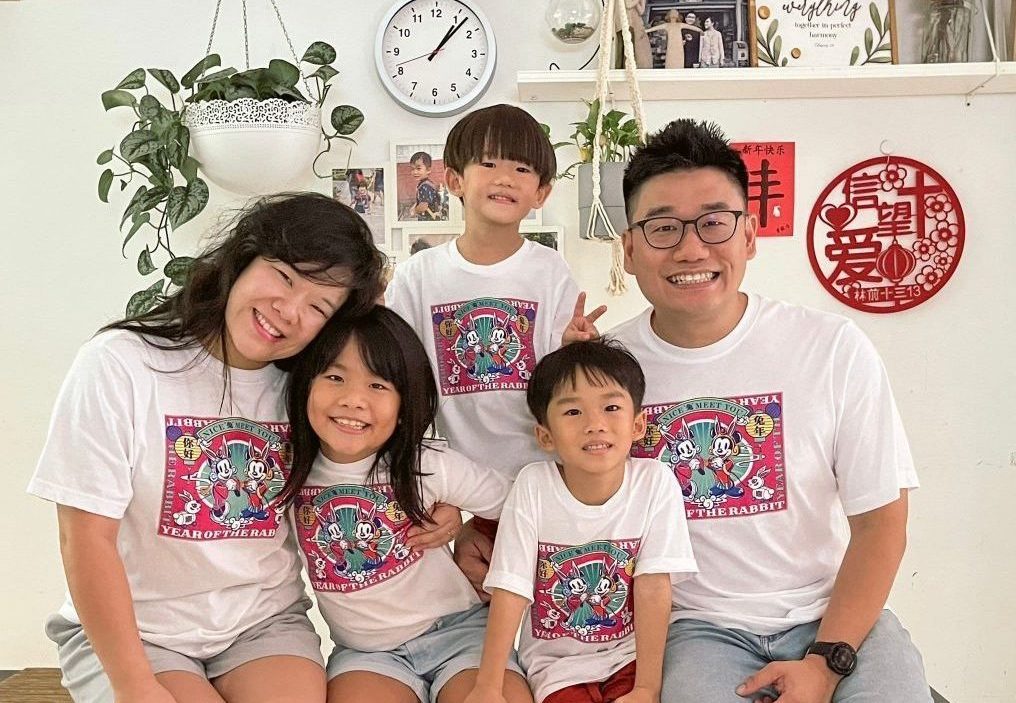“Family comes first” tenet has not stopped IBM veteran Janet Ang’s rapid rise
by Karen Tan // October 13, 2018, 4:14 pm
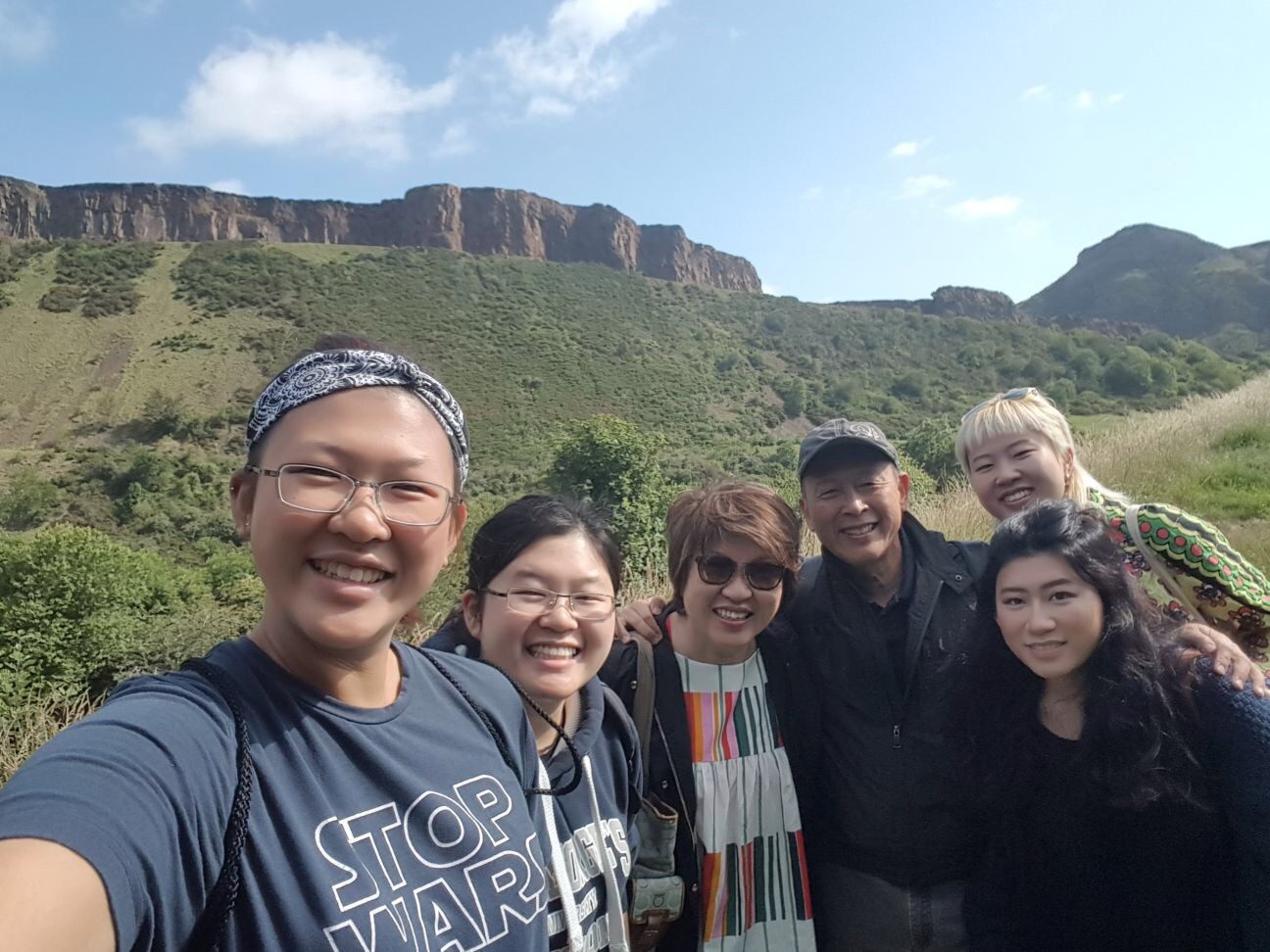
"It is important to prioritise time for communication and sharing. So, no technology for family holidays." The Cheah family bonding on a holiday in Edinburgh, Scotland, in 2017. From left to right: Sarahanne, Lilyanne, Janet, Tony, Joanne and Maryanne.
By her own admission, family comes first. It always has.
As a junior executive, Janet Ang had reportedly told her boss: “Don’t promote me, I am getting married.”
More than three decades later, the IT (information technology) industry veteran does not flinch when Salt&Light asks if she still holds that career takes a backseat to family.
She is resolute that, if the decision ever comes up, it will always be family before career.
For someone who is ready to give her stellar career away, Ang, 59, has not been called to make that choice. Instead she has kept climbing the corporate ladder.
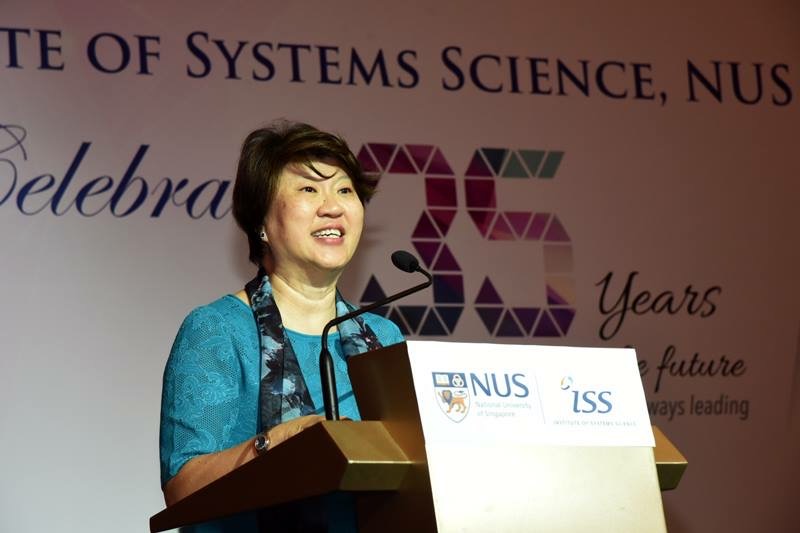
Janet Ang, Chair of NUS Institute of Systems Science (ISS). In 2014, she was awarded the NUS Business School Eminent Alumni Award and, in 2015, she received the NUS Distinguished Alumni Service Award.
Today, 36 years in the same company she started out with, Ang holds the office of Vice-President, Industry Solutions & Business Development at IBM Asia Pacific. Prior to this, she was the Managing Director of IBM, Singapore. And before that, Ang was sent on two international assignments, first to Japan and another to China.
Tokyo calling
In 1999, an opportunity to gain global experience in Tokyo was a chance of a lifetime. Not easy to come by, much less easy to let it go by.
It eventually became a turning point for her family, which by then had grown to four children.
“The good thing about having faith is that we can pray together about family decisions.”
“I had a very good conversation with my husband on what was going to be our collective decision. The good thing about having faith is that we can pray together. We talked and came to a conclusion that it is an opportunity we should go for as a family. So, I can only say I’m blessed.”
To pluck the family from home turf, have a husband give up his career for wife and family, and to plant roots in a foreign country – each scenario can be a monumental challenge. Even more so when all the scenarios present themselves at once.
The young family remained stoic. “Being faith-centred, we could make a family decision built on that. That’s how our decision was made,” Ang explains.
Japan presented a culture shock both within and outside the home. Anthony Cheah (Tony to friends and family), who shelved his career in project management to move with the family to Japan, became Mr Mum.
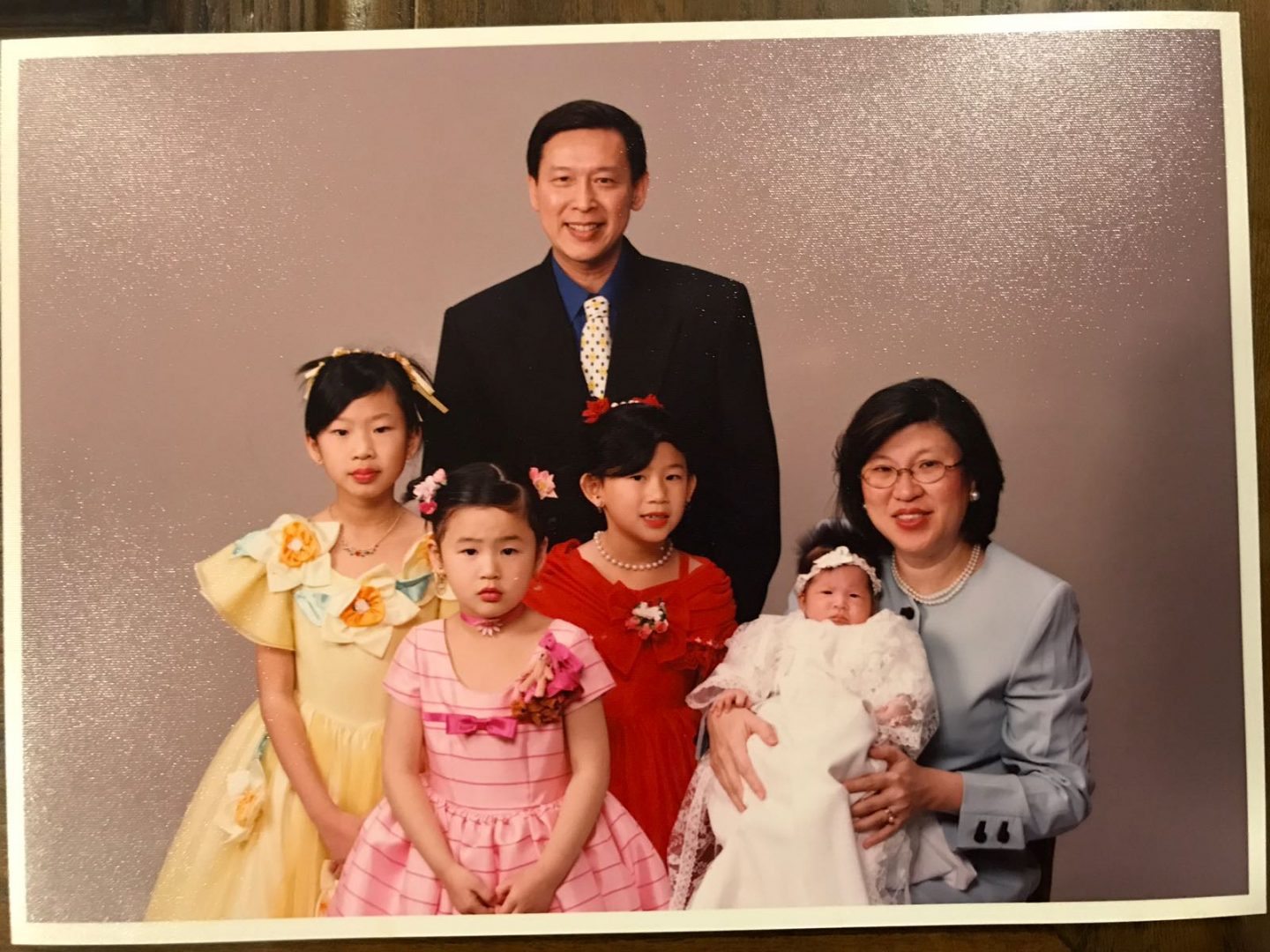
“If my family were not ready to go, I would have given way. I am fortunate there’s still a parent at home.” Janet on her first overseas posting with IBM. Picture taken in Tokyo, Japan, 2001.
“Looking after the household is not a simple thing and can be complex. At work there is some modus operandi. At home with kids, sometimes there can be no modus operandi. So I was mindful of creating the husband and wife time and of giving Tony the space to take a break,” Ang says.
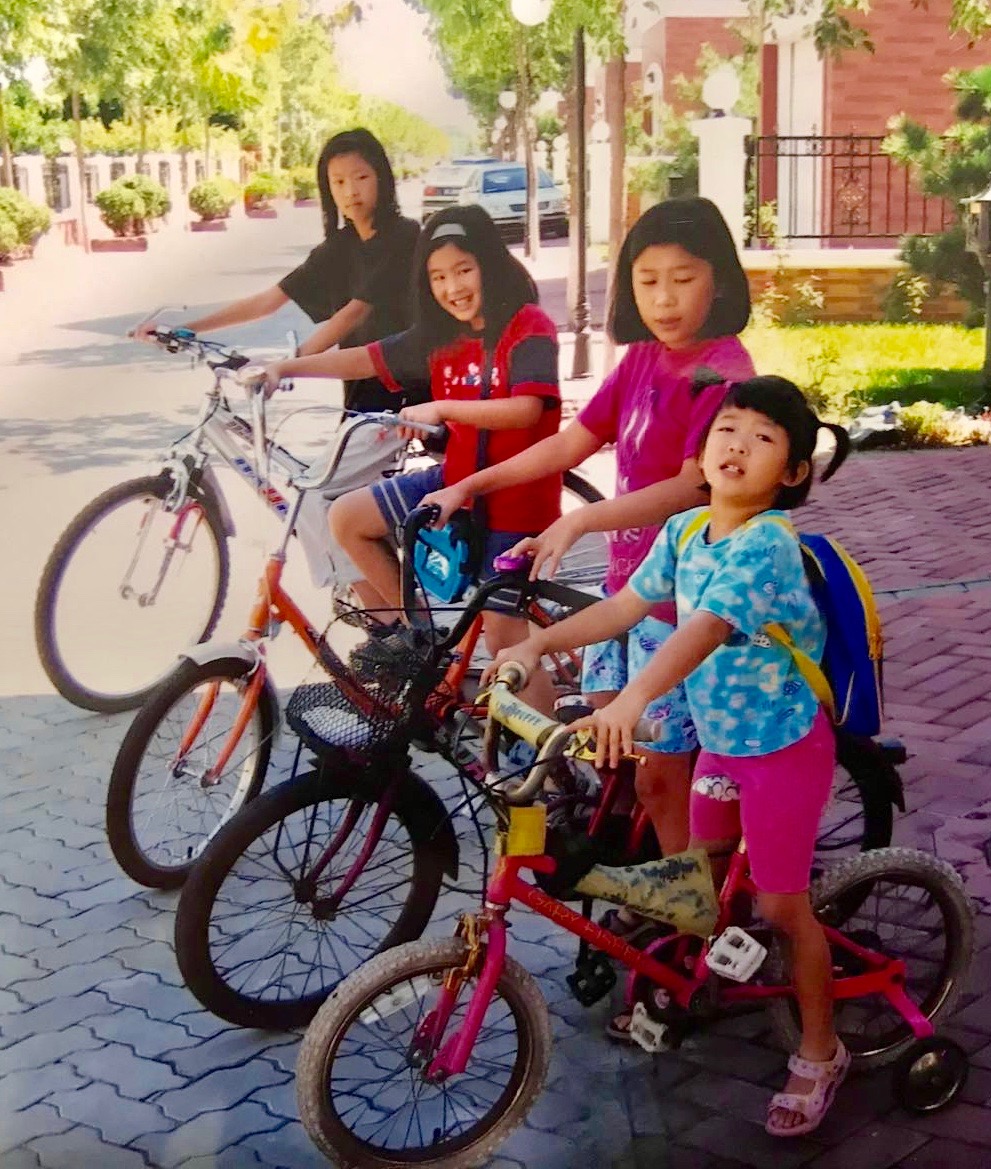
Janet’s second overseas stint took the family to Beijing, China, between 2005 and 2011. Daughters (from left) Joanne, Lilyanne, Maryanne and Sarahanne – two’s company, three’s a crowd, but four’s good fun.
Mum for manja
She is deeply appreciative of the sacrifice her husband made.
“We have to know our place and be respectful to each other. In the home, Tony is in charge.
“Teamwork is key, decisions are made in consultation and we always pray. One must not think the other better and then one must give each other the confidence. If you don’t do that, the family will be out of harmony, then everything else also will fall apart. For both Tony and me, family comes first,” she reflects.
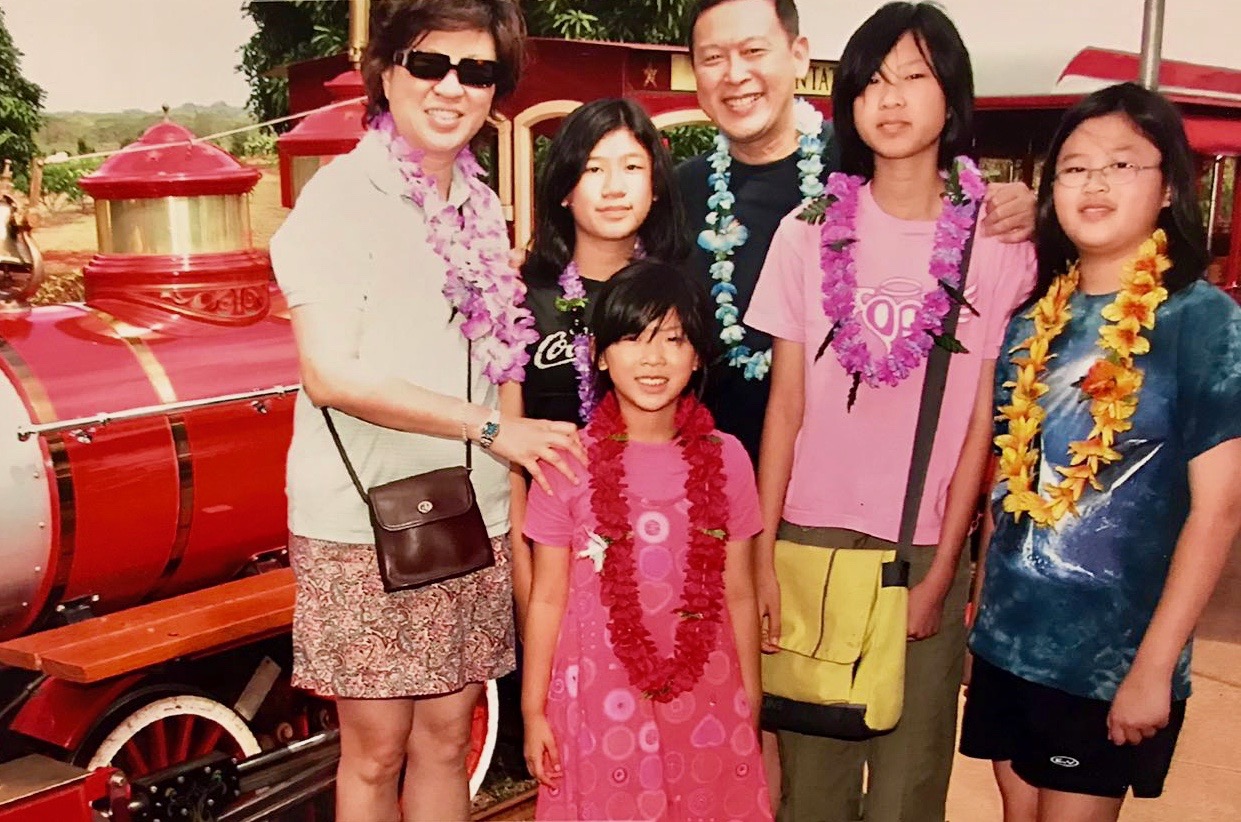
“I’m very fortunate that there is still a parent at home. There are many families with both parents at work. In those cases, something would have to give if the company is not supportive of families.” The Cheah family on holiday in Hawaii, 2007.
At home, Ang’s roles were clear. “It is not that I know any less of what they are doing or what they are up to. I am at their beck and call. The kids know mum’s in charge of certain things. Mummy’s roles at home are of two extremes: Tutoring them for exams and stepping up when they need manja (loving indulgence).
“Things like parent-teacher conferences, those kinds of things, I’m always there. So, I never let it be that, ‘Oh, their mum is very busy at work and work is more important than they are.’ No, I always am there. I do have to prioritise.”
Daddy’s girls
During their three-year stay in Japan, while Ang was making her mark at work, Tony was also leaving an impression on the local community.
“At the Japanese school that the children attended, they initially had a Mothers Association. By the time we left, they had changed the name to Parents Association,” Ang recalls with pride.
“I don’t know which is the taller order: To be submissive or to honour!”
“I told Tony he actually created a wave forward for Japanese men who want to play active roles in parenting. They don’t have to be in that boxed perception that everybody else puts them in.”
With the extended time her daughters have had with their dad, the girls are naturally extra close to their father, but it is not something that perturbs her.
“We have four daughters so, firstly, they are already daddy’s girls, what can I say! I also must develop a sense of confidence that I’m not the lesser-off parent,” she lets on with a laugh.
She reveals her more private thoughts: “I can tell you, when we go for a holiday, one daughter will be on one side of the father and the other on the other side. And the poor mum has to walk behind. Can share right?” She chuckles again.
Although Ang is good-natured about it, you wonder if she has ever felt stabs of envy in moments like these.
“Sometimes,” she confesses. “But most of the time, after that split second, I feel very, very happy because, though I am very busy at work, the family is not dysfunctional. They have a parent to be anchored to and I am no less involved.”
She added: “In my case, if the family were not ready to go (on the overseas postings), or my husband had wanted to pursue his career, to be very frank, I would have given way and would have done something different.”
Love in submission
Janet Ang, the corporate high-flyer ahead of her time, is also one who has her feet planted on the ground and whose values are honed from her faith.
“If love is genuinely present, both male and female would want to be submissive to each other.”
Even in the midst of her many business and family commitments, Ang holds office as Chair of Caritas Singapore, the extensive social and charitable arm of the Catholic Archdiocese of Singapore. Caritas currently serves 28 charities for the poor and destitute, families, youth and children, mentally and physically challenged individuals, prisoners and migrant workers.
“Faith does not lessen a woman’s role. There was a period when people raised the biblical issue of submissiveness in women. In Ephesians, it is written that women must be submissive to their husbands. Another word for ‘submissive’ is ‘obedient’. I always ask my four daughters, ‘Is obedience a bad thing?’ If love is genuinely present, both husband and wife would want to be submissive to each other.” (Ephesians 5:22-23)
“The bottom line is, if a couple wants to become one, you need to fit with each other in whichever way it fits. For me, I am a little bit more submissive to my husband to help him recognise that he is valued and that he is playing an important role in the family.
“But the beauty about the teachings in the Bible is that there is also a flip side. The Word also says husbands to honour (1 Peter 3:7) your wife and love her just like Christ loves the church (Ephesians 5:25). I don’t know which is the taller order: To be submissive or to honour!”
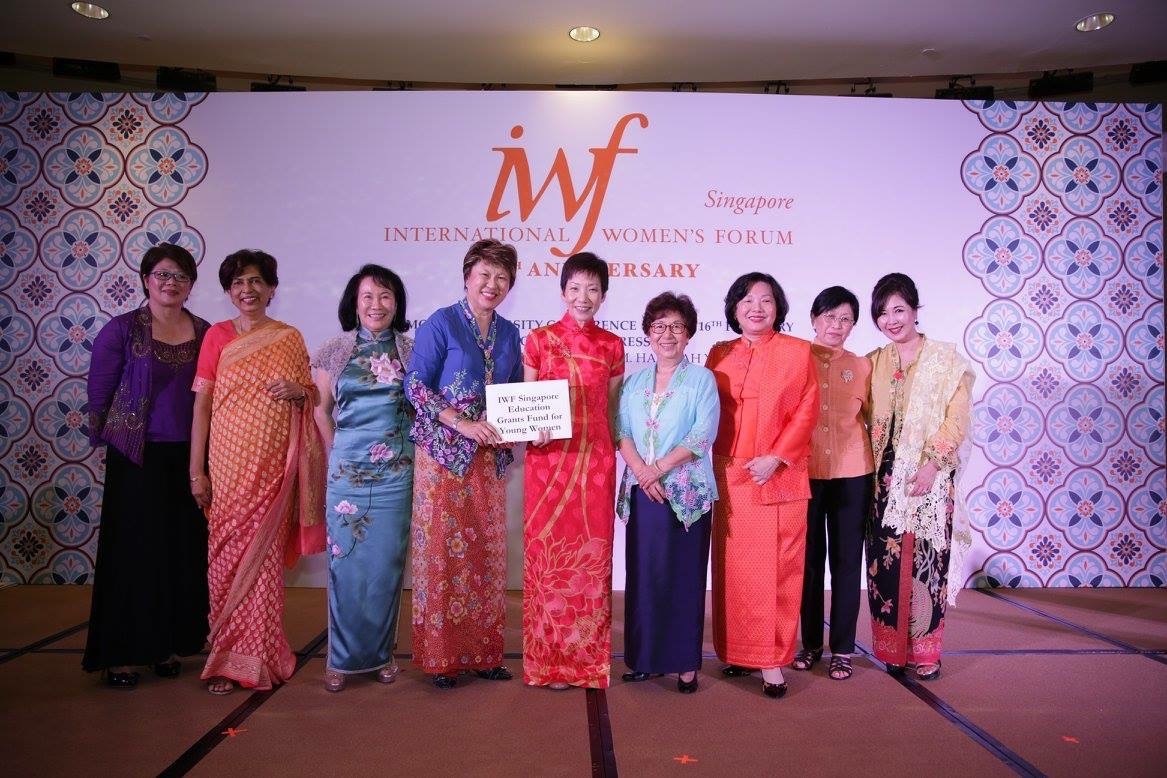
Janet (fourth from left) is the immediate past President of the International Women’s Forum (Singapore).
The next generation
Ang continues to count her blessings at home and at work, where her company is supportive of families and gender equality. Even though this corporate warrior has never felt pressured to conform to the traditional role that Asian society sometimes dictates for women, she intends to make sure that other females have the choice to develop both in their personal and work lives.
“I give a lot of talks at women’s events organised by companies. And, of course, I must champion this because usually the boss is a man. When they hear the IBM story, and my personal story, most of them move on to carry out (women-forward) campaigns.”
As a leader, she is a firm believer that companies need to see the value of supporting employees – both male and female – who are balancing family as well as work. She shares these concerns with the various committees she serves in and the many boards she sits on.
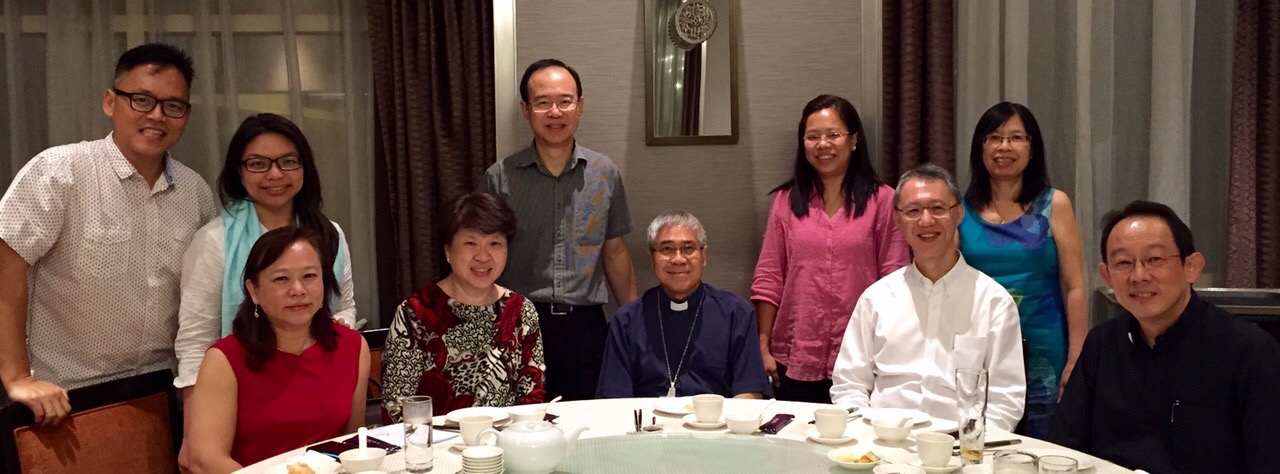
Janet (seated, second from left), Chair of Caritas Singapore, together with Archbishop William Goh (centre) and the Catholic community.
“Family comes first” is something she always shares with the younger people she mentors and with those who seek her advice.
“The most important thing in the family is communication.
“I communicate, communicate, communicate. We all need to share each other’s dreams and desires. When aspirations and desires differ and families don’t communicate, the family could end up breaking, because there may be fear and fear will turn to resentment. All it takes is a spark, then that’s how things will go wrong.
“People call me an eternal optimist but actually it’s because I believe God will help us find the answer.”
Editor’s Update, January 27, 2021: Ms Ang held office as Chair of Caritas Singapore until the end of 2018. She is currently the Chair of the Trustees of the Caritas Singapore Agape Fund.
We are an independent, non-profit organisation that relies on the generosity of our readers, such as yourself, to continue serving the kingdom. Every dollar donated goes directly back into our editorial coverage.
Would you consider partnering with us in our kingdom work by supporting us financially, either as a one-off donation, or a recurring pledge?
Support Salt&Light
